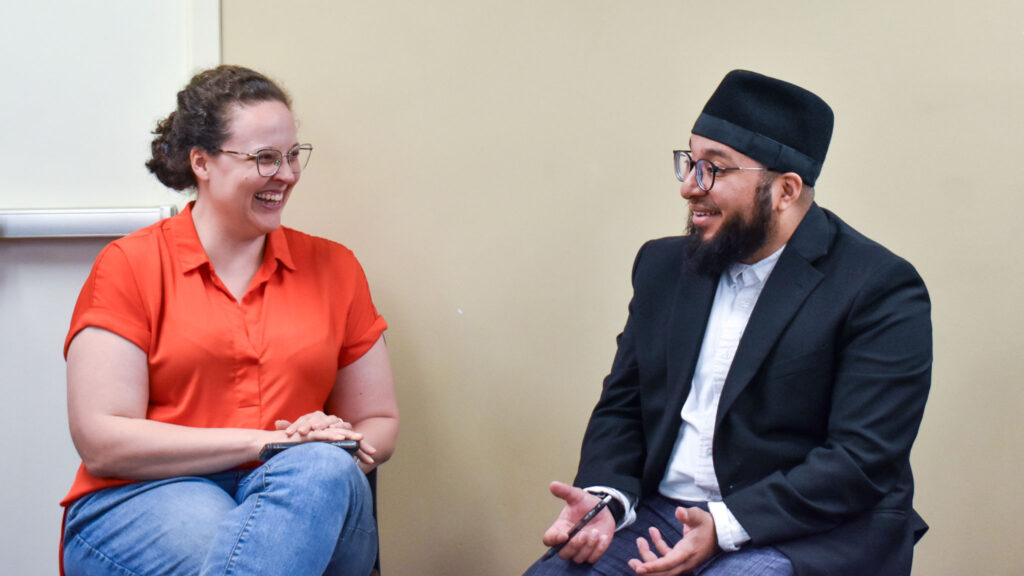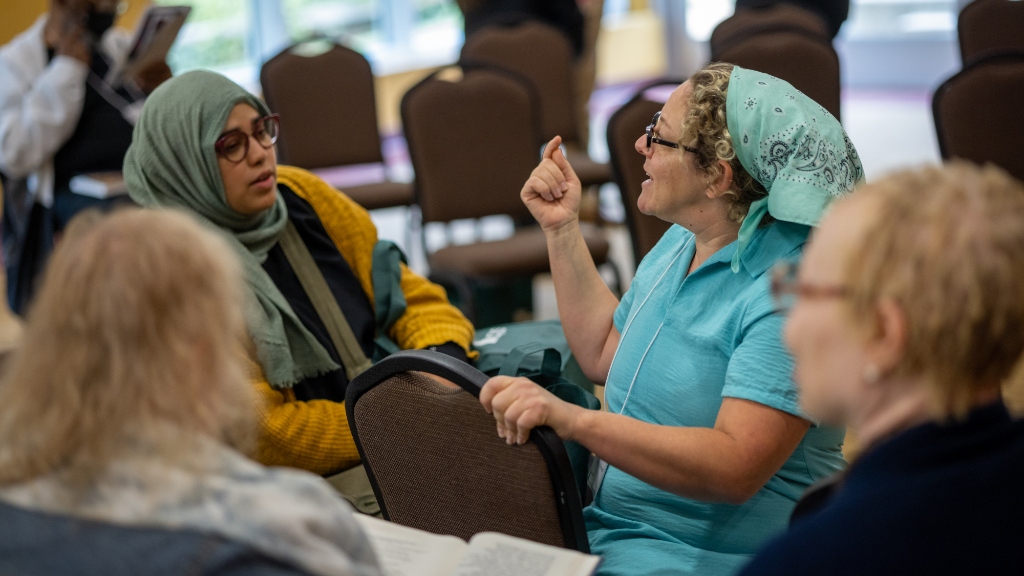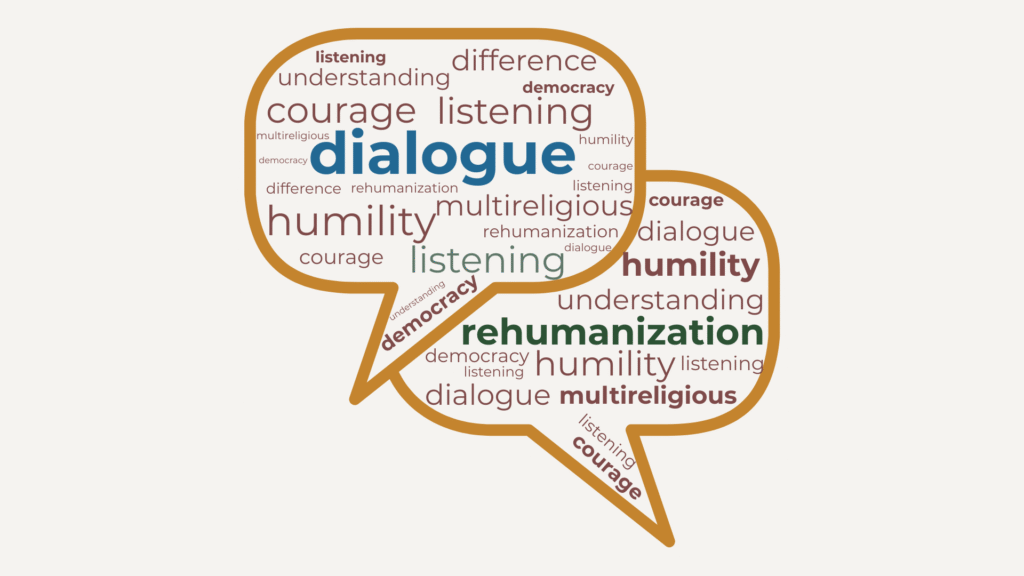Dialogue Across Difference
Dialogue: An ICJS Value
Dialogue invites us to bring our commitments to each conversation and calls for patience, humility, curiosity, and courage. The outcome of dialogue does not require agreement, and meaningful relationships can exist even where there are irreconcilable differences. We believe that dialogue around religious difference deepens understanding and is an essential tool for connecting communities.
Dialogue vs. Debate
Everyone wants to be heard, but a conversation cannot be had if everyone is talking over each other. Use the tips in this video and in the Guideline for Effective Dialogue (below) to help navigate difficult conversations.
Guidelines for Effective Dialogue

Effective dialogue requires more than just talking — it calls for intentional listening, curiosity, and respect. This downloadable resource outlines key habits that distinguish dialogue from debate and help you engage more constructively.
Facilitated Dialogues
 Meaningful relationships endure even amid deep differences.
Meaningful relationships endure even amid deep differences.
ICJS offers Can We Talk? Urgent Interreligious Conversations in a Time of War—resources to help communities engage difficult conversations on Israel and Gaza, with attention to identities and issues shaped by religious difference.
Interreligious Dialogue is Hard—But Necessary

Here are some common objections to interreligious dialogue that individuals must courageously grapple with before entering a conversation on Israel and Gaza, or any topic where participants are deeply divided, writes Heather Miller Rubens.
God-Seeking and Neighbor-Seeking: Two approaches to dialogue

Rubens draws a distinction between two impulses that animate interreligious work. “God-seekers” enter dialogue hoping for spiritual insight, wisdom, or a deeper encounter with the Divine. “Neighbor-seekers” come looking to strengthen relationships across religious and cultural boundaries
Dialogue and Difficult Questions: Antisemitism & Israel-Palestine

ICJS Jewish Scholar Ben Sax’s forthcoming book, Is Dialogue Possible? The Israeli-Palestinian Conflict and the Question of Antisemitism argues that accusations of antisemitism—while sometimes accurate—are also frequently weaponized to shut down discussion.
Minicourses On Demand
Speaking Across Differences: Navigating dialogue in polarized times

This course considered what it means to dialogue during a time of political violence, persecution, gaslighting, and oppression. Very often we teach that tolerance is a virtue in dialogue, yet should we also be tolerant of intolerance?
Martin Buber and the Life of Dialogue

Martin Buber is one the most influential thinkers of the 20th century. This course explored his notion of dialogue as expressed in his corpus of writing, ranging from comparative mysticism to biblical commentary, existentialism to poetry, philosophy to cultural Zionism, and psychology to diplomacy.
I and Thou
Martin Buber’s Philosophy of Dialogue
I and Thou, Martin Buber’s 1923 magnum opus, is the classic text articulating a philosophy of dialogue. ICJS Jewish Scholar Ben Sax shares his insights into this concept that is both seemingly simple and at the same time deeply profound. View the accompanying Discussion Guide: https://icjs.org/wp-content/uploads/2023/12/Buber-Video-Discussion-Curriculum.pdf
I and Thou, Martin Buber’s 1923 magnum opus, is the classic text articulating a philosophy of dialogue. ICJS Jewish Scholar Ben Sax shares his insights into this concept that is both seemingly simple and at the same time deeply profound. View the accompanying Discussion Guide: https://icjs.org/wp-content/uploads/2023/12/Buber-Video-Discussion-Curriculum.pdf
